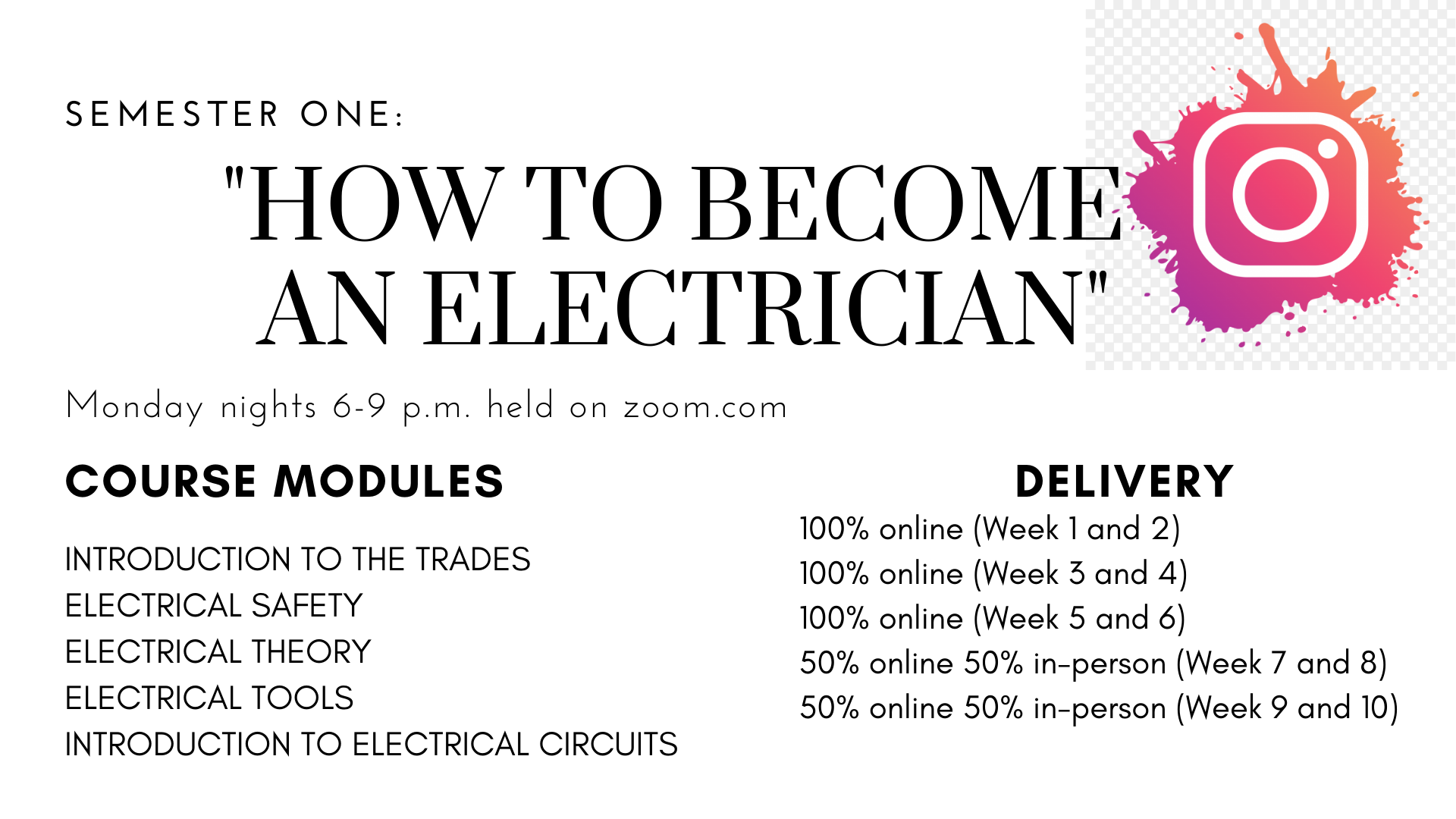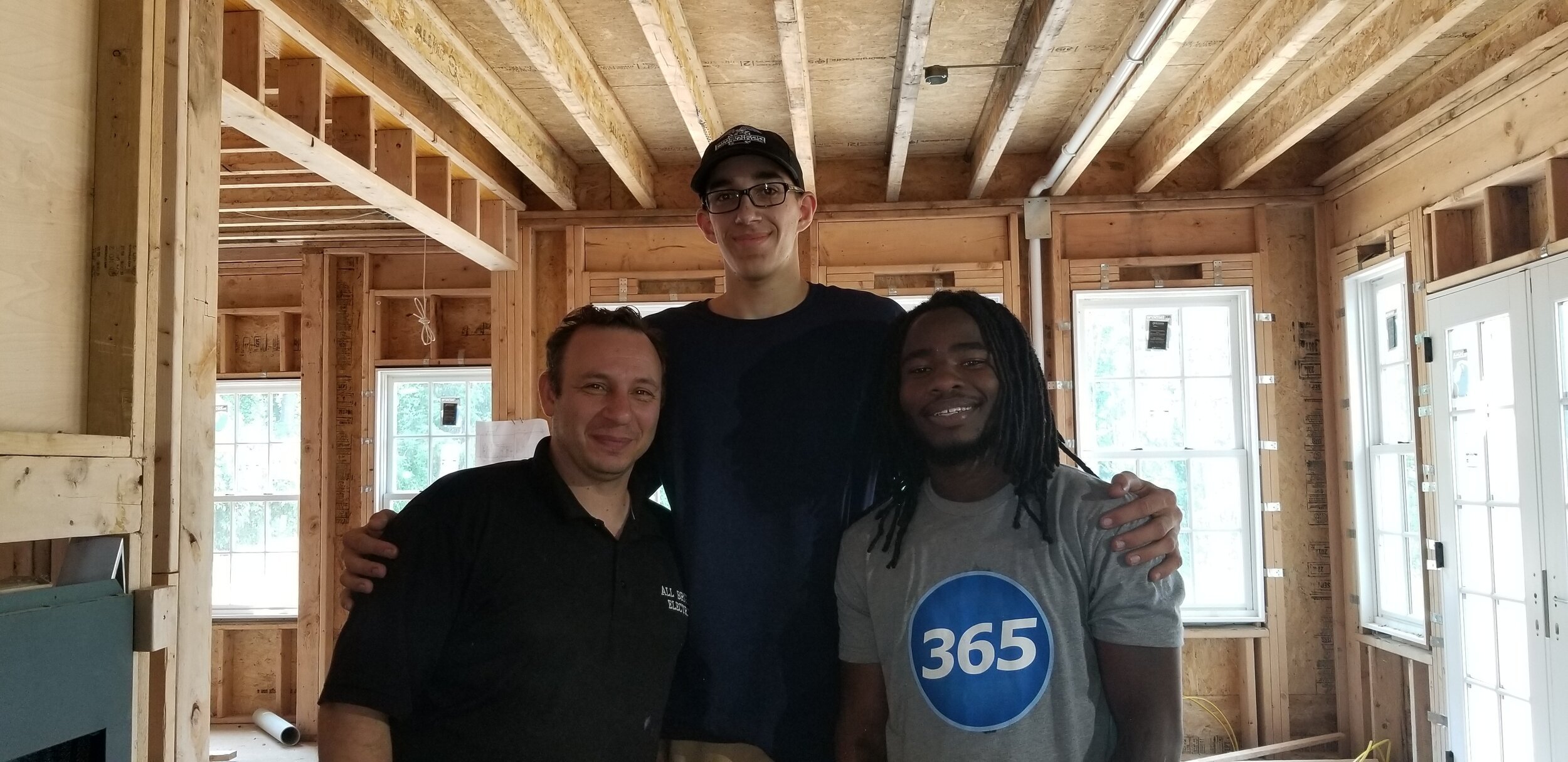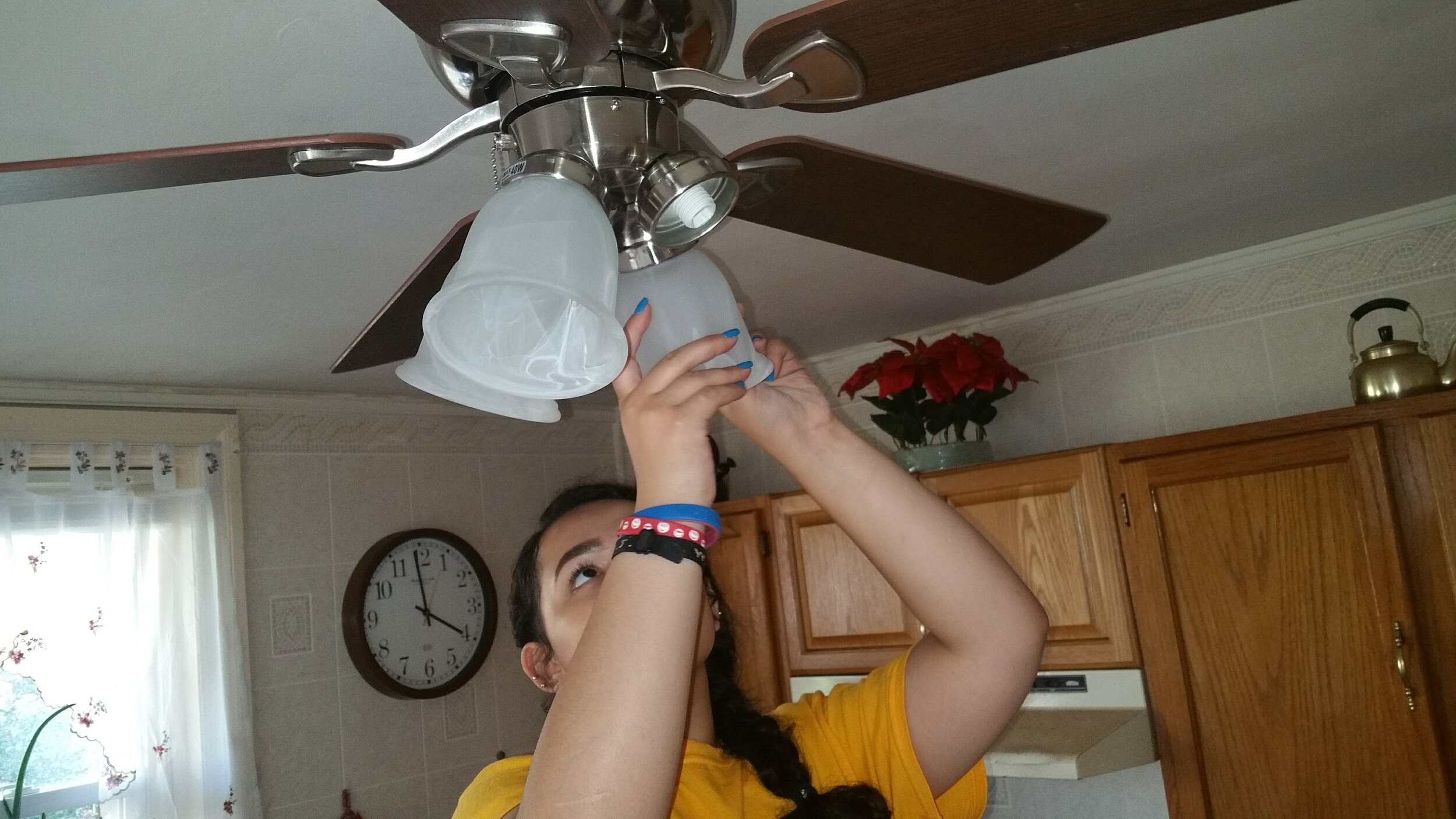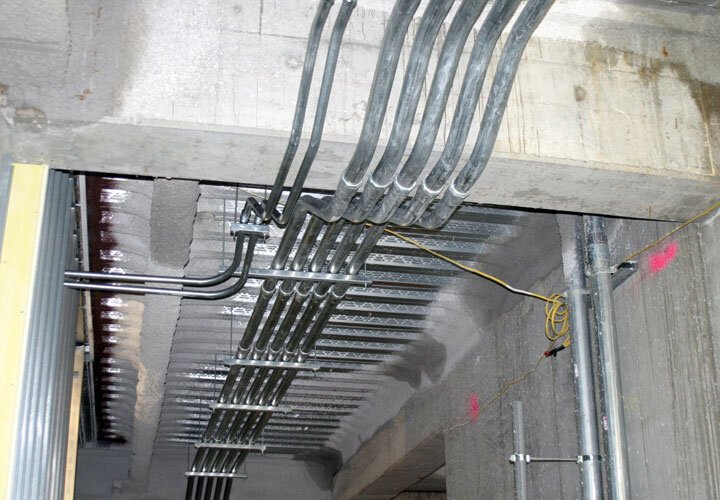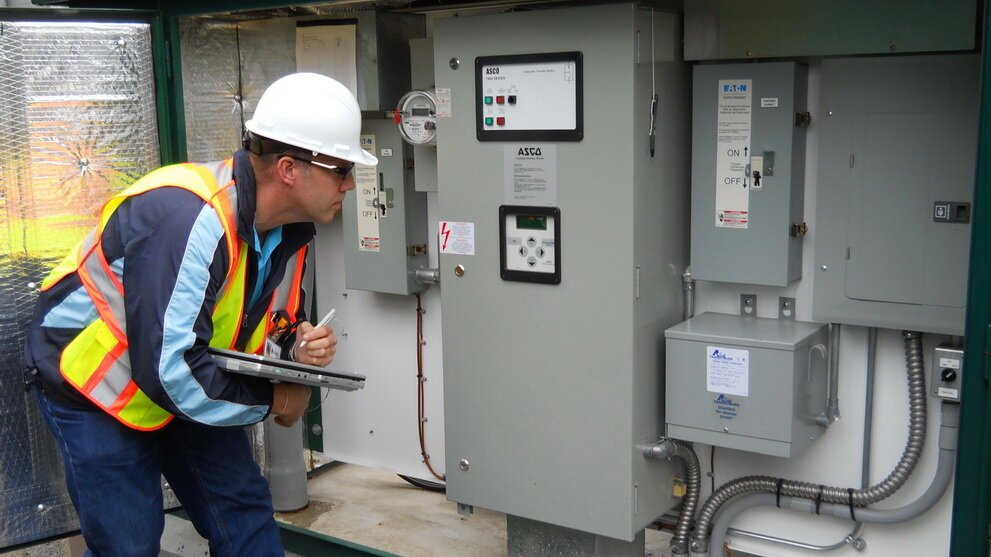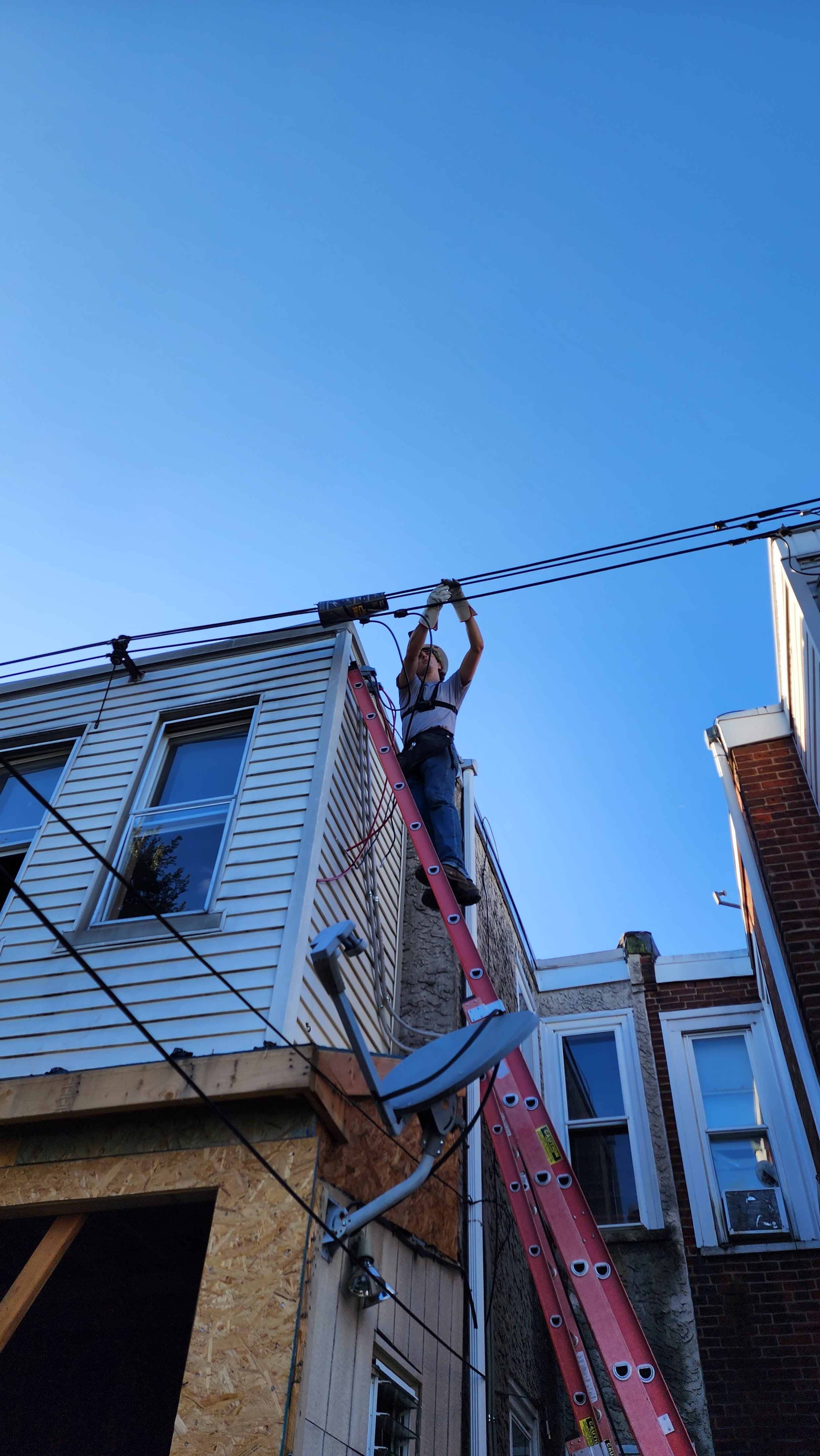
The Process
TAIA IS A 3-COURSE PROGRAM
TUITION FOR EACH COURSE IS $695.00
EXCEPT SEMESTER 3
Our classes are HYBRID online (zoom.com) for lecture and theorey in-person (for hands-on real-world experiences)
You need access to a computer and printer.
OUR PARTNERS ARE
“Learn how the electrical construction industry is “segmented” so you can find the right path. All electricians aren’t created equal…”
Hands-On-Self-Paced Entry-Level Training Program
Just so you know, Electricians are a considered High Priority Occupation. HPOs are job categories that are in demand by thousands of employers all across the world, have evolving skill needs, and are likely to provide High family-sustaining wages, for decades to come. Some types of electricians require more education and training than others. Most field electrician positions do not require four-year degrees or the educational debt that comes along with it. Electricians may also work in constantly changing environments.
Do your research in advance, so you can find the path that suits you. Philadelphia is the largest and most populous city in Pennsylvania, and the sixth-most populous U.S. city according to the 2018 census. As of 2017, Philadelphia County, has over 6 million residents. Philadelphia is the economic powerhouse, biotechnology hub and cultural anchor of the Delaware Valley. Philly ranks nationally as the eighth-largest combined statistical area in the United States. This is the“largest construction boom in Philadelphia since World War II” because millennials love to live, work, and play here. Philadelphia is a big city with lots of potential for new electricians. You should also understand the salaries and wages electricians earn based on their industry, experience and skill sets. The electrical field can be divided into four broad categories:
Residential - Commercial - Industrial - Lineman
As you study to become an electrician, you will reach a point when you will decide which environment is most suitable and economically feasible for your pursuit. Philadelphia has a diverse environment of buildings and structure types. Interview electricians in each sector. Don’t be shy, call potential employers and ask questions; you have nothing to lose.
“Philadelphia is a big city with a lot of potential for new electricians.”
Always start with a mentor Pictured above (Left) Luigi Lazzaro Electrical Contractor (Center) Dan Carlow Helper (Right) Ashon Mott Helper/Apprentice 1st Year.
THE ELECTRICAL FIELD CAN BE FURTHER DIVIDED INTO 3 MORE BROAD CATEGORIES:
New Construction Electricians: Typically work in New and Rehabbed Homes, Businesses, Warehouses and Factories.
Maintenance, Old Work and Service Electricians: Homes, Businesses, Warehouses and Plants.
Automation and Instrumentation Electricians: Warehouses, Distribution Centers, plants and manufacturing facilities.
Lineman: Utility Companies E.g. PECO Energy, Delmarva, PP&L.
Residential Electricians
Work on Homes and Apartments. Perform repairs and installations of receptacles, lights, fans, ovens, and smoke detectors…
Commercial Electricians
Perform repairs and upgrades on office buildings warehouses, stores, churches, and restaurants.
Industrial Electricians
Work in factories, plants and warehouses.
Electricians can be further segmented by these classifications:
At larger companies, electricians are more likely to work as part of a crew. Most building codes and standards contain definitions for the various levels of competency of professionals in the electrical industry.
HERE ARE SOME EXAMPLES OF TYPICAL DEFINITIONS
ELECTRICAL APPRENTICE
Shall mean a person who is required to be registered, who is in compliance with the provisions of a formal training program from a local governing body E.g. Building Trades Union and or a Private company apprenticeship, and who is working at the trade in the employment of a registered electrical contractor and is under the direct supervision of a licensed master electrician or a journeyman electrician.
JOURNEYMAN ELECTRICIAN
Shall mean a person having the necessary qualifications, training, experience, and technical knowledge to wire for, install, and repair electrical apparatus and equipment for light, heat, power, and other purposes, in accordance with standard rules and regulations governing such work.
MASTER ELECTRICIAN
Means a person having the necessary qualifications, training, experience, and technical knowledge to properly plan, lay out, and supervise the installation and repair of wiring apparatus and equipment for electric light, heat, power, and other purposes, in accordance with standard codes and regulations governing such work, such as the NEC (National Electrical Code).
ELECTRICAL CONTRACTOR
Which is synonymous with the title master electrician means any person, firm, partnership, corporation, association, or combination thereof who undertakes or offers to undertake for another the planning, laying out, supervising and installing, or the making of additions, alterations, and repairs in the installation of wiring apparatus and equipment for electrical light, heat, and power.
Electrical Inspectors
Review the work, approve it for payment and notify utility companies...
1. Find a mentor and seek advice.
This mentor can be a contractor you know, a relative, or someone at a supply house that works on the side.
2. Get some formal education not just field experience.
You can start out by doing research online through videos to start grasping concepts. Nothing beats learning in a classroom with other students. This allows you to ask questions and have complicated subjects explained in a way that makes sense to you. It’s also important to learn from (Field experienced) electrical instructors who actively or previously work in the trades. These are the people that can share insight with you, guide you and lead you into the right professional path. A formal education can be what separates you from advancing in this industry. A perfect combination of learning in the field, hands-on projects and classroom lecture can make you stand out from your peers in different scenarios. A formal education can help you to advance further in your field, negotiate higher pay; it can also help to make you in·dis·pen·sa·ble (not subject to being set aside or neglected). A formal education will teach you:
How to perform calculations to build, service and repair electrical components.
It will teach you how design branch circuits and electrical services.
How to apply the codes and installation guidelines for your industry.
How to set yourself apart from your peers.
Have more informed and intelligent conversations with building inspectors, contractors, vendors and laypersons.
3. Learn the craft by experimenting Safely under controlled conditions.
You can get help from neighbors and friends who support your effort. This will build your confidence. Tag along with people you know have experience and want to help you learn. This is a great way to practice on your own first, it will also build your confidence. Philadelphia has some of the oldest inventory of housing in the nation. There will always be someone in need of an addition or an upgrade for electrical wiring. Philadelphia electricians will be busy for decades to come. There’s a great migration here from larger crowded cities, we still have affordable housing (compared to the West Coast). So contractors and builders will be busy for years to come.
This is the order you should learn in:
Learn Electrical Theory. It’s important for electricians to understand how power is generated, transmitted and distributed. Understanding how electrical grid systems helps you to be a better troubleshooter in problem solving in this industry.
Knob and Tube Wiring. Typically found in residential homes throughout Philadelphia.


